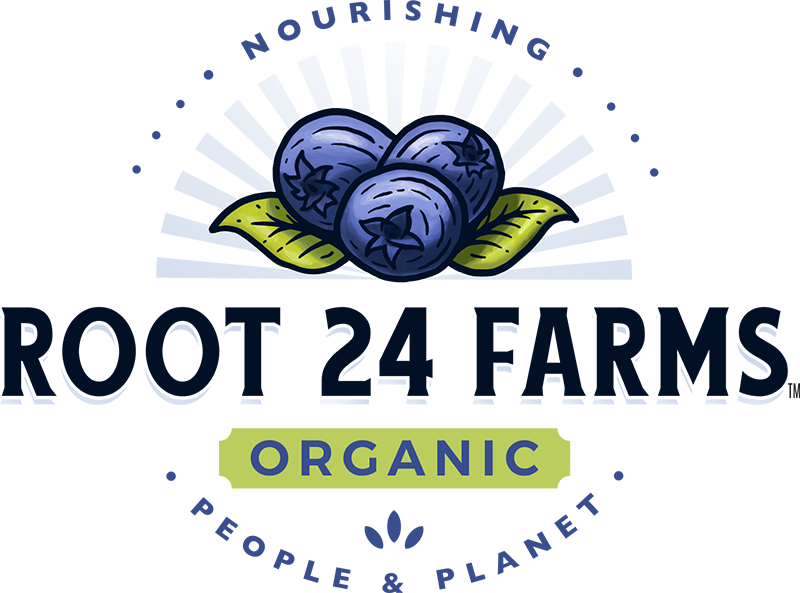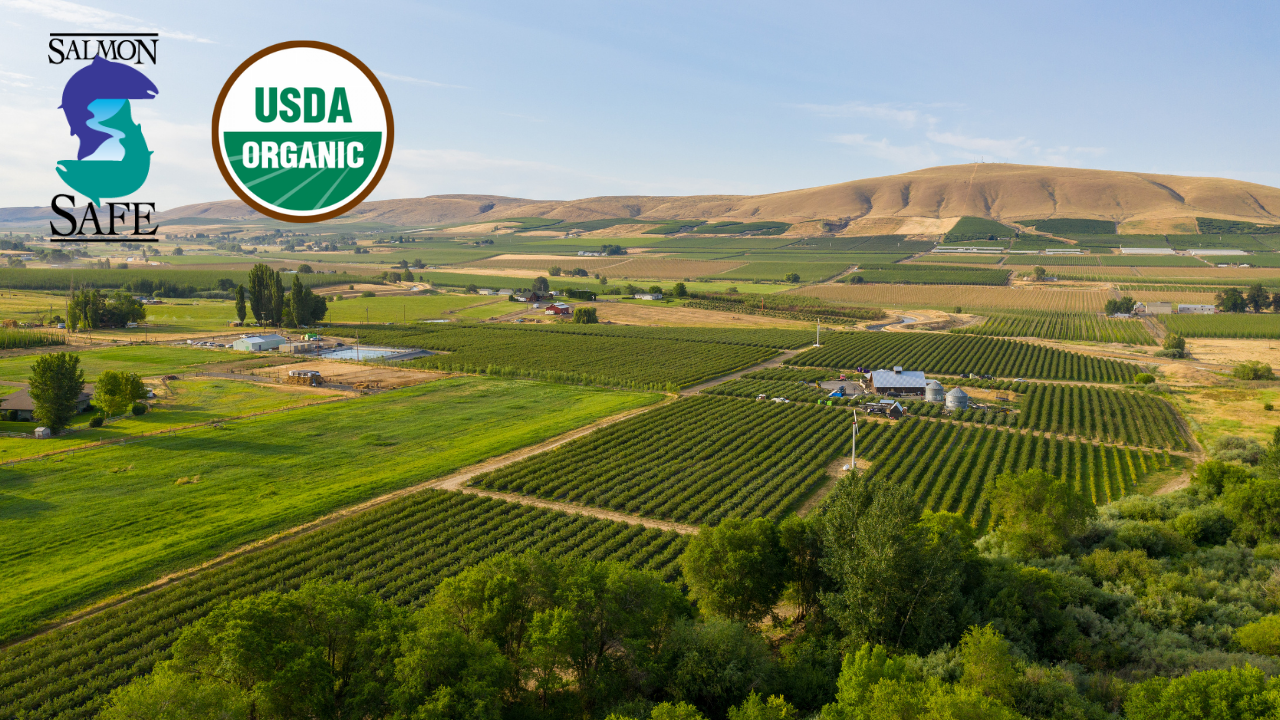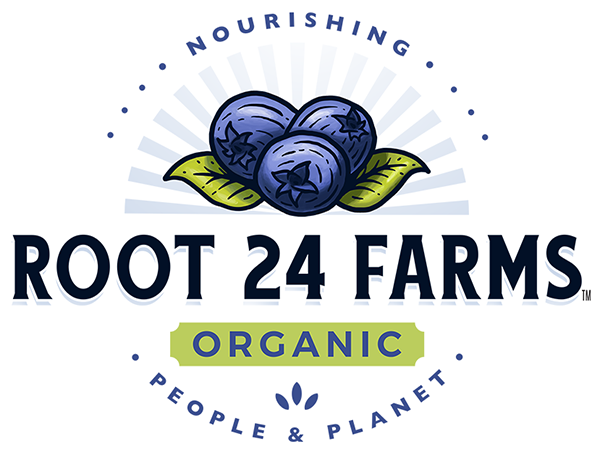Salmon are an important part of the cultural, economic and natural history of the Pacific Northwest, and a pivotal link in the region’s ecosystem. As organic farmers, we’re constantly thinking about caretaking our land for the long term – for us and the delicious organic blueberries we’re growing now, but also for our children and their children and future generations. As mindful stewards of the land, we can play a key role in helping restore native salmon fisheries and in maintaining healthy watersheds.
This is why we have chosen to be Salmon Safe Certified, in addition to being Certified Organic.
The Salmon-Safe Farm Certification Standards are a whole-farm certification process, including both farmed and non-farmed areas. The evaluation process for Salmon-Safe farm certification assesses how a farm’s operations directly and indirectly affect water quality and fish and wildlife habitat. All evaluations are conducted by independent experts.
As a Salmon Safe Certified farm, we are evaluated to ensure we’re doing the best possible in the following areas, all critical to salmon survival:
- In-stream habitat protection and restoration
- Riparian habitat and wetland vegetation protection and restoration
- Water use management – minimizing water withdrawals that impact salmon habitat
- Erosion and sediment control from fields, farm roads, and pastures
- Integrated pest management and water quality protection to eliminate harmful levels of fertilizers and pesticides as well as petroleum contaminants.
- Practices that support and enhance landscape biodiversity
These practices are deeply ingrained in our approach to farming. You could ask why we need to be certified if we already do it. It’s important to show you and the rest of the world that these practices are as important to us as they are to our collective future.
Click here to learn more about Salmon-Safe Certification.


